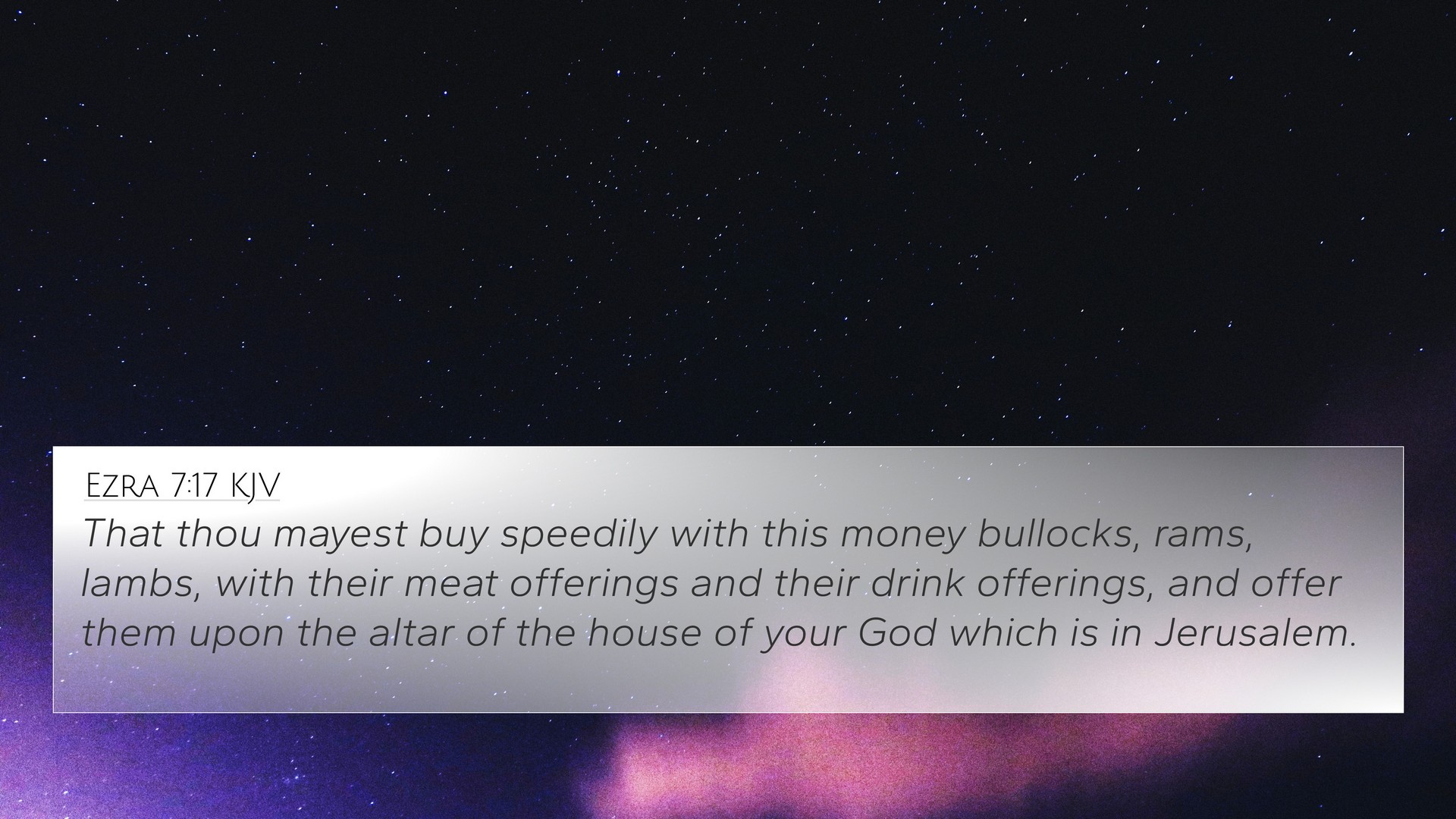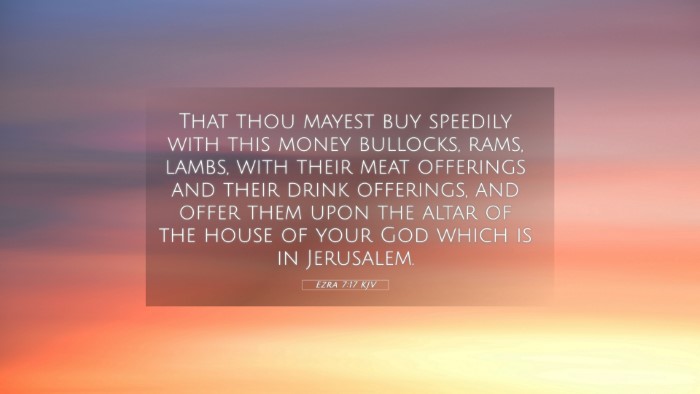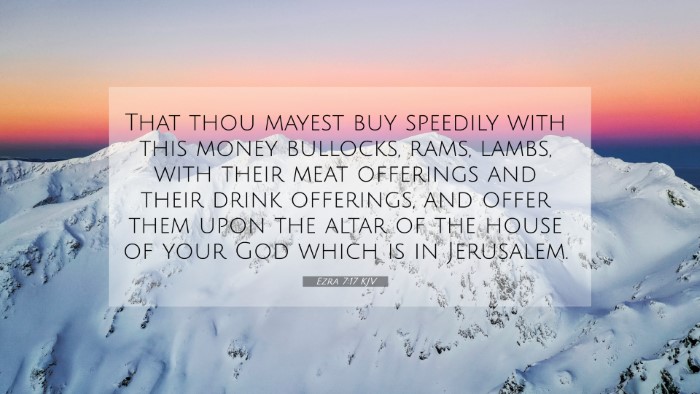Old Testament
Genesis Exodus Leviticus Numbers Deuteronomy Joshua Judges Ruth 1 Samuel 2 Samuel 1 Kings 2 Kings 1 Chronicles 2 Chronicles Ezra Nehemiah Esther Job Psalms Proverbs Ecclesiastes Song of Solomon Isaiah Jeremiah Lamentations Ezekiel Daniel Hosea Joel Amos Obadiah Jonah Micah Nahum Habakkuk Zephaniah Haggai Zechariah MalachiEzra 7:17 Similar Verses
Ezra 7:17 Cross References
That thou mayest buy speedily with this money bullocks, rams, lambs, with their meat offerings and their drink offerings, and offer them upon the altar of the house of your God which is in Jerusalem.
Uncover the Rich Themes and Topics of This Bible Verse
Listed below are the Bible themes associated with Ezra 7:17. We invite you to explore each theme to gain deeper insights into the Scriptures.
Ezra 7:17 Cross Reference Verses
This section features a detailed cross-reference designed to enrich your understanding of the Scriptures. Below, you will find carefully selected verses that echo the themes and teachings related to Ezra 7:17 KJV. Click on any image to explore detailed analyses of related Bible verses and uncover deeper theological insights.

Deuteronomy 12:5 (KJV) »
But unto the place which the LORD your God shall choose out of all your tribes to put his name there, even unto his habitation shall ye seek, and thither thou shalt come:
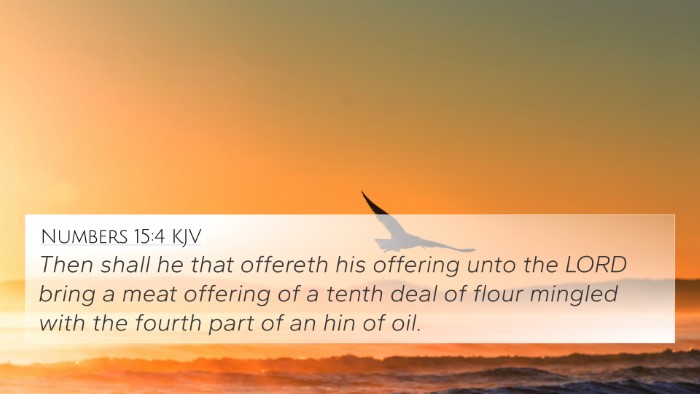
Numbers 15:4 (KJV) »
Then shall he that offereth his offering unto the LORD bring a meat offering of a tenth deal of flour mingled with the fourth part of an hin of oil.
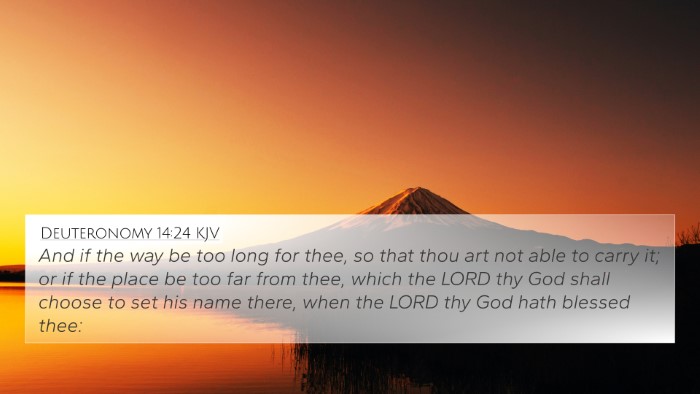
Deuteronomy 14:24 (KJV) »
And if the way be too long for thee, so that thou art not able to carry it; or if the place be too far from thee, which the LORD thy God shall choose to set his name there, when the LORD thy God hath blessed thee:
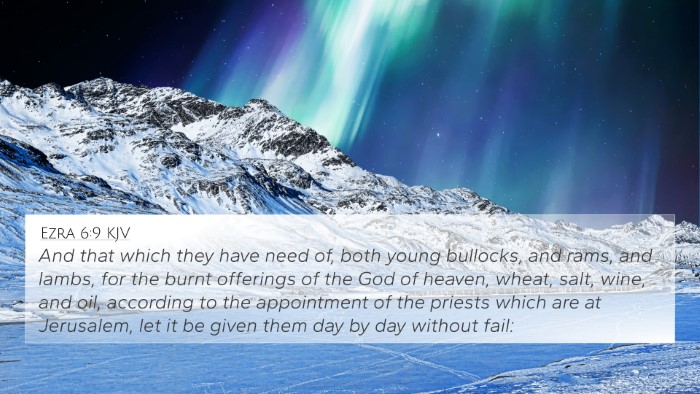
Ezra 6:9 (KJV) »
And that which they have need of, both young bullocks, and rams, and lambs, for the burnt offerings of the God of heaven, wheat, salt, wine, and oil, according to the appointment of the priests which are at Jerusalem, let it be given them day by day without fail:
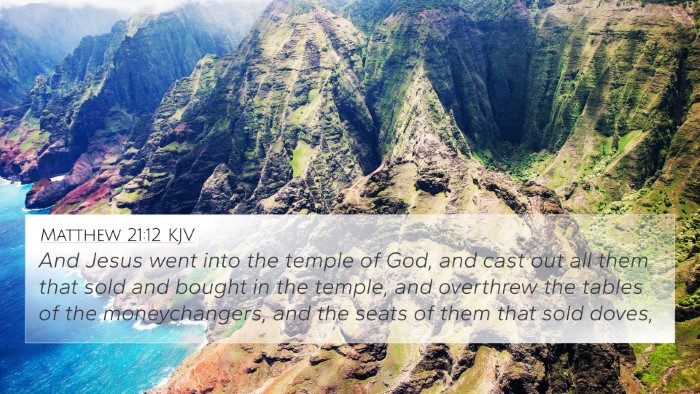
Matthew 21:12 (KJV) »
And Jesus went into the temple of God, and cast out all them that sold and bought in the temple, and overthrew the tables of the moneychangers, and the seats of them that sold doves,
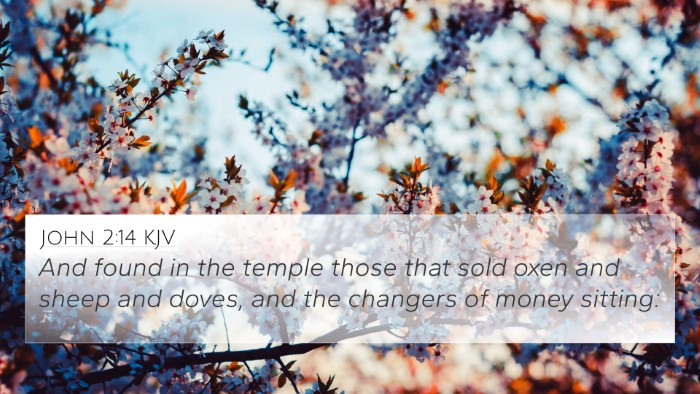
John 2:14 (KJV) »
And found in the temple those that sold oxen and sheep and doves, and the changers of money sitting:
Ezra 7:17 Verse Analysis and Similar Verses
Understanding Ezra 7:17
Ezra 7:17 states: "You are to buy with this money bulls, rams, and lambs, along with their grain offerings and drink offerings, and offer them on the altar of the temple of your God in Jerusalem." This verse highlights the importance of preparing offerings for the temple, signifying both worship and dedication to God.
Commentary Insights
This verse is a pivotal instruction given to Ezra, emphasizing the necessity of proper sacrifice and worship. Below are insights compiled from notable public domain commentaries:
- Matthew Henry: Henry emphasizes that the offerings mentioned signify a commitment to God. The act of bringing sacrifices to the temple is not only about the offerings but about the heart of the giver, reflecting obedience to God's commands.
- Albert Barnes: Barnes points out that this verse depicts the role of financial stewardship in temple worship, where Ezra is instructed on the types of animals to offer. Each offering has significance and purpose, underscoring the seriousness of worship rituals.
- Adam Clarke: Clarke remarks on the detailed nature of the offerings, suggesting that such specifics indicate the care taken in approaching God. The verse serves as a reminder of how offerings should be approached with reverence and preparation.
Thematic Connections
The connections between this verse and other Scripture highlight its greater context within biblical worship and sacrifice. Here are some vital themes and cross-references:
- Leviticus 1:3-9: Details the procedures for burnt offerings, illustrating the longstanding tradition of sacrificial worship.
- Malachi 1:11: Discusses the importance of giving offerings that are acceptable to God, resonating with Ezra’s instructions.
- Hebrews 13:15: Ties in with the concept of offering sacrifices of praise, emphasizing that worship extends beyond physical offerings.
- Romans 12:1: Paul instructs believers to present their bodies as living sacrifices, extending the concept of sacrifice into the New Covenant.
- 1 Chronicles 29:9: Highlights the joy associated with bringing offerings to God, reflecting the heart condition with which they should be given.
- 2 Corinthians 9:7: Paul elaborates on how God loves a cheerful giver, demonstrating the attitude needed when bringing offerings.
- Philippians 4:18: Relates to the idea of sacrificial giving and how such acts are pleasing to God.
Cross-Referencing Insights
By engaging in cross-referencing Biblical texts, we find profound connections that deepen our understanding of the sacrificial system as depicted in this verse. Here are some theological reflections based on cross-reference principles:
Tools for Bible cross-referencing, such as a Bible concordance or Bible cross-reference guide, can aid in exploring the connections between this verse and others. Consider these implications:
- By linking Bible scriptures, one can trace themes of sacrifice throughout both the Old and New Testaments.
- Thematic Bible verse connections can help preachers and teachers uncover the comprehensive narrative of sacrifice, worship, and relationship with God.
- Cross-referencing Bible study methods may deepen one’s understanding of how different biblical authors interpret the same theme.
Practical Application
Identifying connections between Old and New Testament passages can lead to a richer spiritual life. As believers understand how Bible verses relate to each other, they can:
- Prepare their hearts before God, recognizing the importance of offerings—both material and spiritual.
- Engage in meaningful worship by reflecting on how historical practices still resonate today.
- Utilize comprehensive Bible cross-reference materials to facilitate deeper understanding in personal study or teaching settings.
Conclusion
In summary, Ezra 7:17 is more than an instruction; it is a reminder of the overarching biblical principle of worship and sacrifice. By examining this verse alongside other relevant scriptures, we can appreciate the continuity of God's requirements for His people across the ages. This understanding not only enhances our theological knowledge but also enriches our practice of faith.
